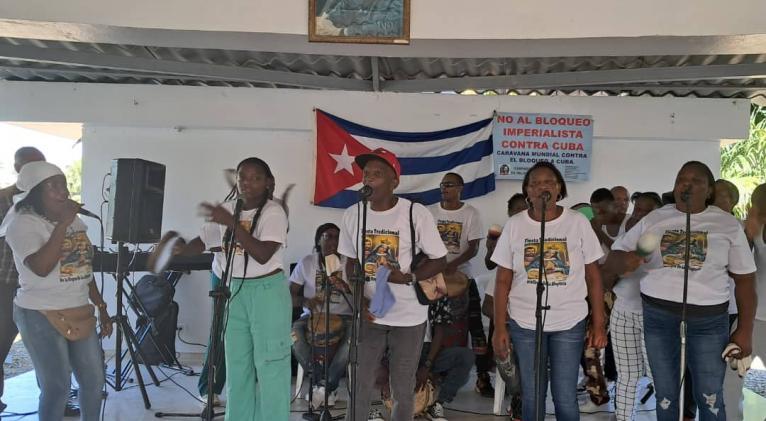Villa Mella, a neighborhood in Santo Domingo that looks like Cuba
especiales

You hear the name and you may actually believe you are in a Cuban neighborhood. But it is located in Santo Domingo Norte, Dominican Republic. And it is that among those historical links that connect us as a nation, beyond the sea, there is the Dominican great-great-grandfather of our very Cuban Julio Antonio Mella. There are even those who say that Quisqueya has a lot of responsibility in our tradition of rebellious rebels: first Hatuey, then Máximo Gómez and finally that young, beautifully communist man who also had Dominican blood in his veins.
Then, the roast pork, which nowhere tasted as much like Cuba as there, but above all, the people. Those people who shout, hug each other, who dance as if no one were watching or for everyone to see… Those people who cannot resist the sound of the drum or keep their emotions under lock… Those humble and vibrant people like those in Los Hoyos, in Santiago de Cuba, San Isidro, in Havana or my beloved neighborhoods of La Marina and Simpson, in Matanzas (the list, I am sure, would have to be longer).
But of course, the first image that comes to mind is the one that one feels and knows best, so I told them at the first opportunity: I feel like I am at home, in La Marina, surrounded by the friends with whom I grew up, where rumba is life itself, one of the Muñequitos or Rumba Timba concerts where my little girl dragged me to the front row, so I did not even try to resist the rhythm of the La Santísima Cruz drum group, which is different, but comes down to the same thing.
And if all that were not enough, the improvisations of those artists, bearers of an authentic tradition, spoke about Cuba as one speaks of one's older brother, they cheered my country as if it were their own, they shouted our "ever onward to Victory!" with such conviction that with wet eyes and goosebumps one could not help but swear loyalty to that trust. They always say it in the news, but it is never the same as seeing it there: we continue to have the responsibility of hope, despite everything.
Despite the blockade, which they condemned loudly, and despite the shortages that they also asked us about, despite the blackouts that turned out to be a shared experience, because, a man explained to me between dances: “here they cut off the service between 10 and 12 hours a day, supposedly to make repairs, but it seems that they never end,” everyone wants to come to Cuba, starting with Celestino, the driver who took us there with part of the group Arnaldo Rodríguez and Talismán, a nice black man whose dream will have to be fulfilled so that he can say like Santa Cabral: “I have always wanted to go, but this year was the perfect day. We were invited to the Fiesta del Caribe, there in Santiago Cuba. For me, it is my second home, because there the people have a harmony, a love, just like us Dominicans. I was there for a week and it was a blink of an eye. I have a mother there, at the address Sanguily between 1st and 2nd, number 60.”
The ideal would be to bring Celestino's wife, his daughters, and the grandchildren he groups by age to go fishing, because they love like in Cuba, with the same doses of intensity and concern. If you spend a lot of time working with them, they ask you: did you forget that you have a family? Just like that, right? But let's go back to Villa Mella and its art, which deserves pages and pages.
As Santa explained to me, there are 13 groups of representatives like them nationwide and they are all family, descendants of Pío Brasoban, the chief of the Congos of the Holy Spirit. The music and dances they cultivate respond to two fundamental variants: The Brotherhood, related to Catholicism, and the Vigil, where they invoke and pay homage to the deceased.
As I listened to her, I could not resist trying to link these folkloric expressions with our own, to find common points. That is a task that remains pending, but I sense that it will not be so difficult, since both Caribbean islands have common origins, we were colonized by the same Metropolis, African blood and sweat fertilized our lands and that mixture left us people who are equally combative, happy and hospitable.
Translated by Sergio A. Paneque Díaz / CubaSí Translation Staff














Add new comment